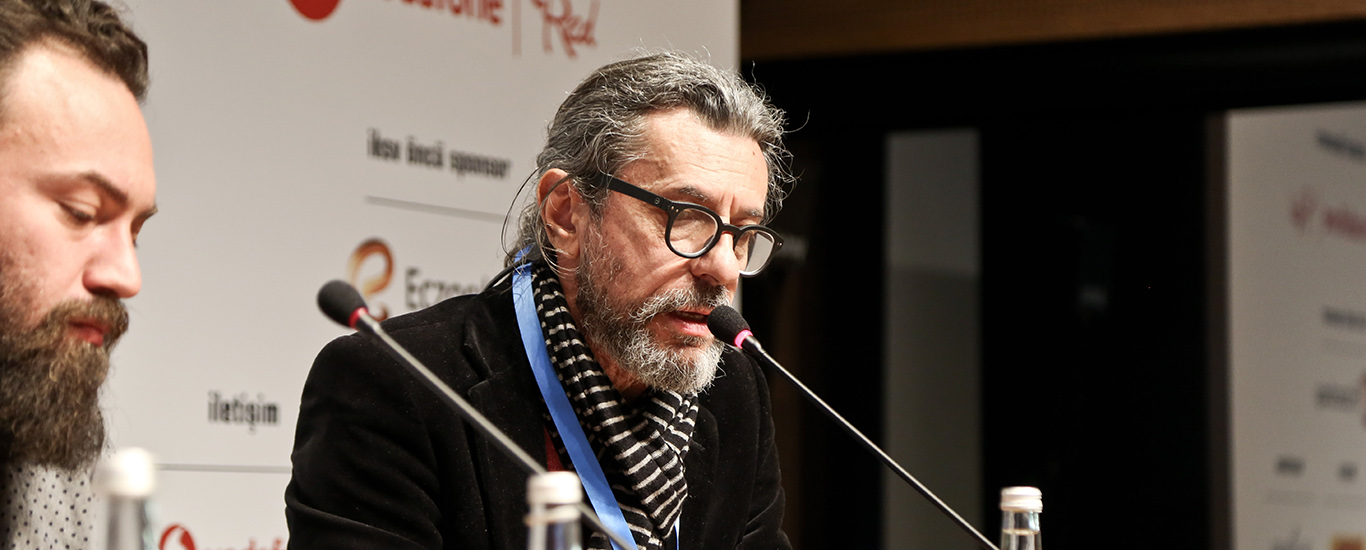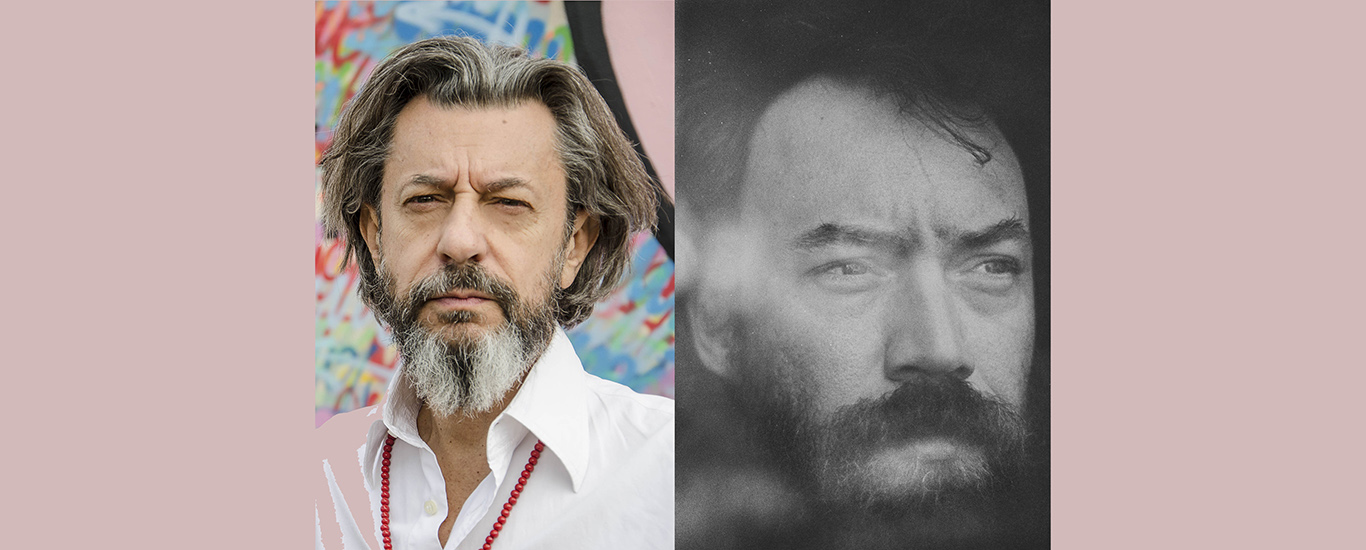Saturday, April 14
Soundtracks were discussed today at the festival talks. Celebrated musician Pivio who has composed many prominent soundtracks to films such as Hamam and Harem Suare and who is also the soundtrack artist of Love and Bullets shown at the Istanbul Film Festival this year, had a lovely talk with composer, songwriter, vocalist, musician Korhan Futacı who also composes soundtracks.
“Composing music is easy, but composing for a film is hard,” said Pivio and pointed out that it’s important not to forget that you’re serving a film when you compose music for it: “You need to work with a lot of people in a film. The purpose is to do the best for the film, not to satisfy your own musical desires. What I care about is to create the right sounds and music for the film.” The musician said that the first soundtrack he composed was for the film Hamam and he was working as an engineer at the time: “We wanted both western and eastern influences for Hamam. The idea of it was heaven and hell. Apart from the orchestral music, we used the bağlama, the kemenche, the darbuka and the daf. After Hamam’s screening at Cannes, I decided I wanted to quit engineering and make music.”
Korhan Futacı whose last composition was for the soundtrack music for Onur Ünlü’s film The Bank of Broken Hearts said: “The main thing is the characters, the places, the feeling that the director wants to convey, the emotions… What does that scene represent in the film? Is it a moment of climax or a pause?” The composer shared that he goes to the set from time to time, watches the shooting and begins to form a one-on-one relationship with the director at the set, and talked about the co-working process at Seren Yüce’s film The Swaying Waterlily: “For that scene, Seren wanted an improvised, avant-garde jazz music. He was thinking a music in contrast with the lives of the characters, and that would cut off their lives with a sharp blow.”
Futacı also talked about his background in painting, and explained that when he is painting, he listens to its music, and that when he is making music, he is seeing its colors. He also added that he is trying to create music that has colors and visuality. Futacı claimed that sometimes the best soundtrack music is the music that you don’t hear or notice. “The point is to make the sound become one with the feeling. When that happens, you don’t even realize that you’re hearing the music.”
Pivio also said that every director has a different approach to music: “The director is the person who has the thematic idea of the film. You need to be as in touch with him as possible. Apart from that connection with the director, the editor also plays a very important role here.” Lastly, Pivio added that the people who compose soundtrack music need to act according to the film’s needs and to the director’s vision: “In all these years of making soundtrack music, being open-minded so as to not repeat myself has been the best lesson for me.”
Photo: Benek Özmez










